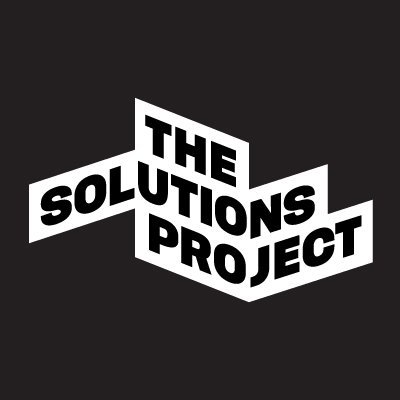( ENSPIRE Community Spotlight ) The Second Annual #BlackClimateWeek Focuses on the Connection Between Black History and Climate Solutions
ENSPIRE Contributor: Iris Michelsen
Two weeks ago, in honor of Black History Month, The Solutions Project partnered with the Hip Hop Caucus to launch the second annual #BlackClimateWeek. The campaign, which ran from February 21-25, aimed to raise awareness and support for Black leadership in the climate justice movement.
This year, the campaign highlighted the work of 14 organizations at the forefront of climate solutions that are rooted in Black history. Each of the organizations featured is also a Solutions Project grantee. Since 2019, The Solutions Project has supported 95 Black-led grassroots organizations, giving more than $4 million in grants, and offering strategic communications and social media support.
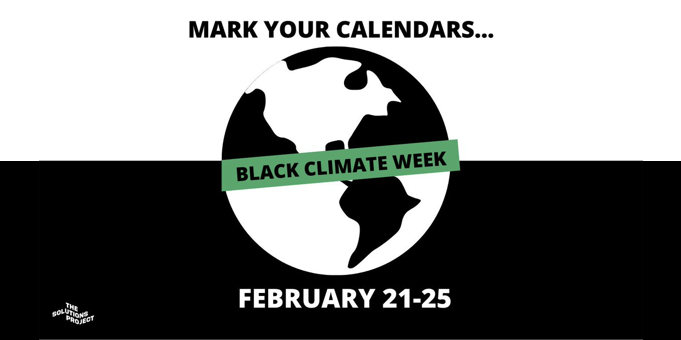
The Solutions Project initially launched #BlackClimateWeek in 2021 in part to raise awareness about the under-representation of climate justice leaders of color at Climate Week NYC. This led Climate Week NYC to invite The Solutions Project to partner with them. The Solutions Project not only took part in the opening ceremonies, but they were also able to organize their own events such as “New York Leads on Climate Policy” and “Climate Justice Technology Solutions–Stories from the Frontlines.”
Shimekia Nichols, who spoke at The Solutions Project’s Climate Justice Technology Solutions event, said, “Throughout U.S. history, Black people have demonstrated tremendous resiliency and love for our communities. When we experience injustice, we support one another and develop revolutionary solutions. Our work on climate and the environment is a shining example of that. In Highland Park, our local utility DTE Energy removed our streetlights and left us in the dark. In response, we’re putting in new solar-powered streetlights, which are better for the environment, and we get to own and control them.”
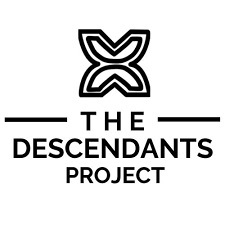
One of this year’s honorees is The Descendants Project, an organization led by Joy Banner that focuses on environmental justice through land stewardship. The organization is committed to generational healing and flourishing for the Black community of the Louisiana river parishes. Their work includes securing land reparations for the descendants of the people who were enslaved at one or more of the hundreds of plantations along the Mississippi River, and fighting against polluting industries in the region of Louisiana known as “cancer alley.”
Also featured in this year’s #BlackClimateWeek is Blacks in Green, a 501(c)(3) non-profit led by founder and CEO Naomi Davis. Blacks in Green has developed a theory of change that states that only a whole-system solution can transform the whole-system problem common to Black communities everywhere. BIG recently purchased the Emmett and Mamie Till-Mobley home, which the organization plans to turn into a museum honoring the family’s story within the context of America’s Great Migration.

Davis said, “Black History Month is not only about looking back. It’s also about reinventing today the community infrastructure once typical in Black America as we birthed the Underground Railroad, the Great Migration, and the Civil Rights movement.”
#BlackClimateWeek is also celebrating The Feilds at Rootsprings, a wellness and retreat center in rural Minnesota owned and operated by three lesbian couples of color. Rootsprings is a land-based cooperative stewarding space for healing and development, resting on a plot of 36 acres. The center offers a place of rest and rejuvenation for Black, Indigenous, and People of Color and LGBTQ activists, writers, and artists engaged in climate issues and social justice. The center has programs that aim to heal the generational trauma that Black people have inherited within America’s rural spaces and to inspire Black imaginations in order to build a better future.
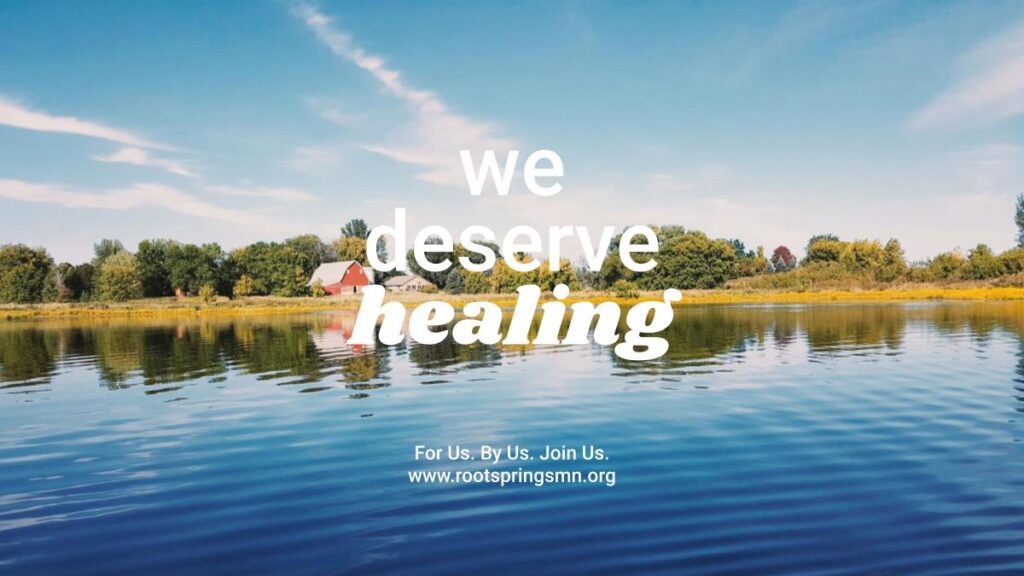
ENSPIRE spoke with Rev. Lennox Yearwood Jr., President and CEO of the Hip Hop Caucus, about what #BlackClimateWeek means, and how anyone can get involved.
What kind of work do you do with the Hip Hop Caucus?
Hip Hop Caucus started as a movement in 2004 to use our cultural expression to shape our political experience and get out the youth vote. We are a multi-issue advocacy, organizing, and storytelling organization that brings together hip-hop culture and communities on issues of racial, economic, and environmental justice. The climate crisis is a lens through which we view all our work and issues as it is here and impacting us day in and day out. If we act together now, we can create a better future for our communities.
How did the Hip Hop Caucus and The Solutions Project come together to promote the #BlackClimateWeek campaign?
Hip Hop Caucus and The Solutions Project have worked together on many projects and campaigns over the years. We made it a priority to partner with The Solutions Project for Black Climate Week 2022 because of our shared belief in the importance of elevating the work of Black leaders and communities in the climate justice movement.
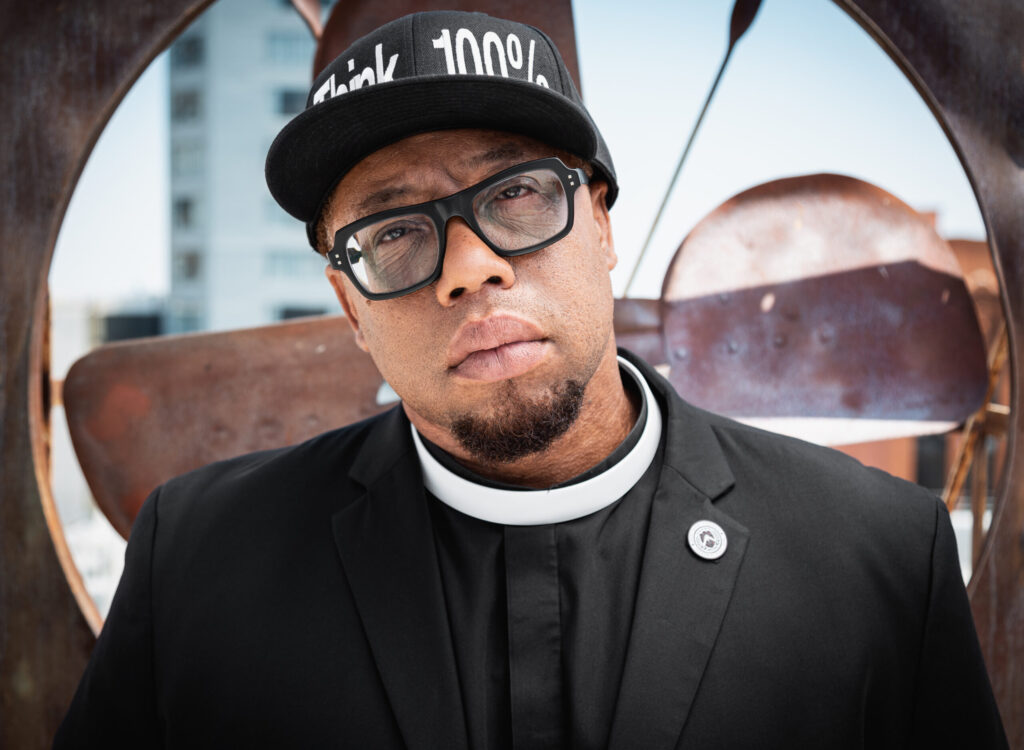
Why is it so important to support Black environmental activists?
Black environmentalists are often overlooked in the media even though we are the primary heroes on the frontline of the climate justice movement. As a result, Black environmentalists are often underfunded, doing the most important work with the least amount of resources. Supporting Black environmentalists is critical to creating climate solutions that address the disproportionate impact of the climate crises on Black communities. Supporting them also helps create a more equitable, thriving world for us all. Black Climate Week is a phenomenal week to get exposed to Black environmental leaders and begin following their leadership.
In what ways are communities of color disproportionately impacted by climate change? What causes these discrepancies?
Communities of color are disproportionately impacted by the climate crises systemically, like almost every other form of racial and social injustice. The climate crisis is a serious public health threat and it is a major concern for communities already vulnerable because of our deep inequities.
One of the most noticeable effects of the climate crisis is the increased strength and frequency of extreme weather and natural disasters. After a natural disaster hits a community, we know that Black, Indigenous, and Brown communities get left behind. Hurricane Katrina laid that truth bare in 2005, and we have seen it happen again and again every hurricane season since.
Black and low-income communities are also disproportionately affected by air pollution in the United States. Black people are 75 percent more likely than White people to live in “fence-line” communities – areas near fossil fuel infrastructure and commercial facilities that are polluting our communities. This pollution, which is at the root of the climate crisis, is causing major health issues in our communities, including increased rates of asthma and lung cancer, heart disease, and neurological impacts.
Another example is flooding. Urban flooding from the climate crisis is increasing across the country and it’s happening disproportionately in communities of color. In every way, the climate crisis is impacting our health and daily lives, and it is hitting our communities first and worst.
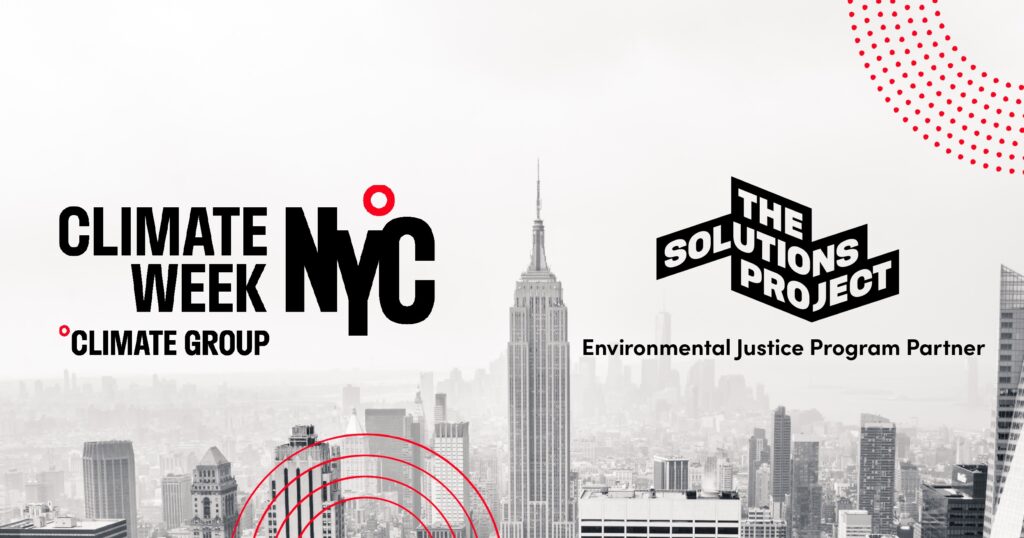
Why did Hip Hop Caucus choose to be a supporting organization for Black Climate Week?
Hip Hop Caucus has a platform called Think 100%, which is dedicated to telling stories and driving activism that recenters the climate crisis and climate solutions on the communities who are on the front lines because for too long, narratives on climate and the environment have been shaped by white-led environmental organizations.
And as a result, we have skewed ideas about who belongs in the climate movement. Black Climate Week is a moment that is part of a larger movement that says climate justice is racial justice, and racial justice is climate justice. Not only do we belong in the climate movement, we are the climate movement. Our communities have been fighting for clean air, clean water, and healthy and safe communities for decades. That is climate justice.
How can individuals get involved with Black Climate Week?
People can follow Hip Hop Caucus’ Think 100% accounts @think100climate and visit our climate and environmental justice platform at Think100Climate.com. This week is a perfect week to catch up on dozens of interviews with Black climate justice leaders on our podcast, The Coolest Show.
The most important thing to take away from Black Climate Week is that we should support Black environmentalists all the time, so learn about our movements this week and then stay involved year-round. We can create systemic change when we take consistent, concerted action and speak truth to power. And of course get connected to our partner, The Solutions Project, at @100isnow and thesolutionsproject.org.
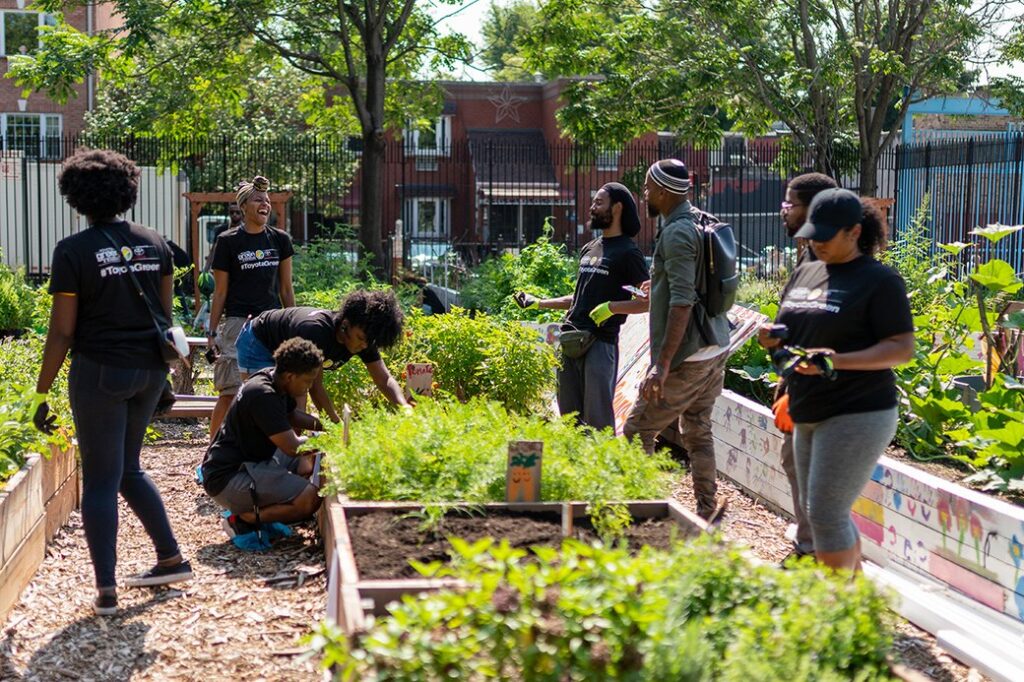
The need for climate action has never been greater, and intersectionality is crucial within the climate movement. In order to address the unique ways climate change is impacting communities of color, we must listen to the Black climate justice leaders who are working tirelessly to heal our Earth. As Rev. Yearwood emphasized, #BlackClimateWeek is only one week of the year, but it is everyone’s responsibility to support Black climate activists every single day.
Visit Hip Hop Caucus’s website and follow them on Instagram!
Related Articles: MountainTrue – North Carolina Environmental Nonprofit Holds Auction to Support Local and Global Communities, EDIT+ is Reinventing Fashion with Sustainability, 1MYAC: One Million Youth Actions Challenge for a Greener Planet

